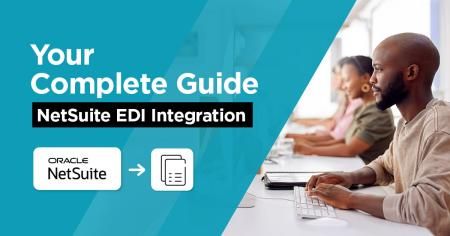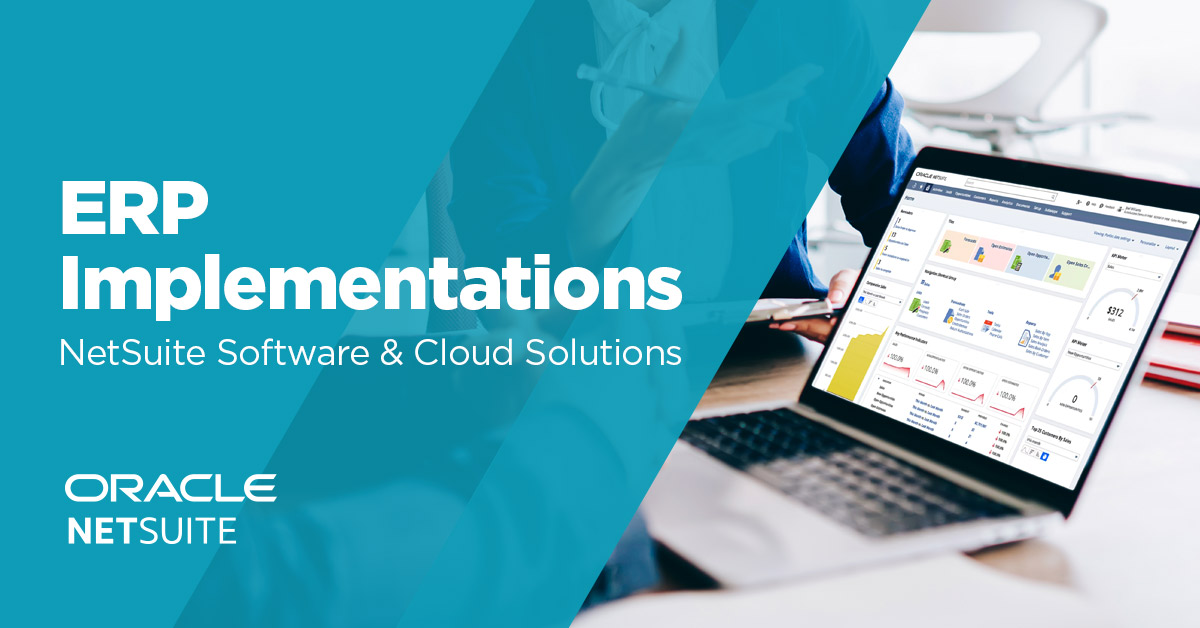Communication is key in any relationship - including the one between businesses and their external partners, such as suppliers and vendors. For organizations that are constantly sharing large and important documents, a clear and seamless communication channel is a necessity.
This is why an integration between your Oracle NetSuite ERP platform and electronic data interchange (EDI) can be a vital part of your business’ activities.
Request More Info About NetSuite EDI Integration Guide
What is Electronic Data Interchange (EDI)?
The simplest answer is that EDI is an exchange of information. More specifically, it’s the exchange and transfer of data and documents, in electronic form, between business partners. For example, EDI includes purchase orders or invoices and payments that a buyer and supplier might exchange.
In this global marketplace filled with complex supply chains, having the ability to share this electronic data across borders and time zones is a huge asset for companies. Moreover, getting it to the recipient immediately and without any delays is equally important.
Using this form of automated data transfer and communication, companies are sharing important data in a standardized format so there’s no confusion.
Who Benefits Most from EDI Integration with NetSuite?
Any business working on a global scale or across different supply chains can benefit from EDI functionalities. More specifically, small businesses or those using NetSuite for retail, ecommerce can also benefit from the use of EDI when communicating with their external partners.
EDI capabilities can also offer advantages when it comes to financial planning and management, thanks to NetSuite accounting software, which is part of the ERP platform itself.
By enabling EDI functionalities between themselves and their partners, organizations can focus on perfecting their core practices: building seamless relationships with their supply chains so they can continue to serve their customers. Businesses looking to grow can use these tactics to expand their marketplace.
Why You Should Integrate NetSuite With Your EDI
Using the Boomi integration platform, businesses integrate their EDI and NetSuite ERP for a centralized approach to communication and data sharing. Many large retailers and businesses ensure their suppliers have EDI capabilities so that onboarding them is simple and quick.
The same goes for any new vendors they want to work with; they can easily start managing orders and notifications without any initial setup that could otherwise lead to delays. A NetSuite EDI integration can be so straightforward, even small businesses that use NetSuite have adopted EDI as their core communication method.
3 Main Benefits of a NetSuite EDI Integration
While there are several advantages to any application integration, the benefits of connecting your NetSuite ERP and EDI capabilities include better communication and simplifying onboarding processes for vendors, among others. Let’s explore further:
1. Fast and Effortless Communication
Effortlessly sync with your external partners’ EDI capabilities and channels without any delays. By integrating your EDI into NetSuite, you can exchange information and messages using the same format and process as your vendors and suppliers.
So there’s no confusion or delays when working with existing partners, as well as when onboarding new ones. And, this removes the need for any manual entry on your and your employees’ part.
2. Fewer Errors and Manual Processes
EDI integration into your NetSuite ERP platform lets you automate important processes that include sharing data and timely updates. This streamlined approach not only creates efficiencies and less room for errors, it ensures your teams are more productive as they focus on other core tasks.
3. Cutting Costs
This is probably the most obvious and important benefit to any business owner: cost savings. An EDI integration definitely saves the cost of having an employee process or write out important documents. Again, avoiding this manual data entry ensures there are no errors and your employees are working more efficiently.
But, thanks to electronic data, such as invoices and shipment notifications, the savings are even greater. Having automated data processing means less paper usage, filing and sending using traditional postage methods. Overall, this also cuts administrative costs.
These are benefits that almost any business can enjoy. If you’re using NetSuite for your small business, an EDI integration eliminates labor-intensive steps that employees would otherwise carry out. This gives you the opportunity to redirect your employees’ time to other more valuable and lucrative tasks.
Similarly, if you’re a larger business running on NetSuite, such as retail or e-commerce, having this valuable EDI integration offers consistent and reliable procedures. Data is automatically processed and shared and you can access it anytime you need to make important business decisions.
Best Practices for an Effective NetSuite EDI Integration
Implementing a Middleware
An effective integration between your NetSuite ERP and EDI capabilities starts with the right middleware. This is the connector between applications and data within an organization. It ultimately also connects users within the organization in cases where they need to share or exchange data.
By using a middleware like Boomi, you ensure full data visibility and sharing among all teams within your organization. Plus, you get immediate and real-time access to this one source of truth.
The Right Implementation Partner
If you haven’t already implemented Oracle NetSuite as your core ERP platform, having the right support is necessary. More importantly, your implementation partner will ensure your project allots for any integrations your business may need as it grows - especially if it works on a multi-cloud environment.
As you plan for your business’ future, you’ll need to include any possible software integrations. Having an ERP specialist working alongside your team ensures that you’re ready for this eventuality.
When it comes to an NetSuite EDI integration, a supportive external team can offer your business the particular training it needs on EDI functionality and usage. You’ll be able to customize and adapt this to your company’s growing needs and supply chain with ease.
By leaving this task to the experts, you won’t have to use any of your internal resources that could ultimately be put towards more important needs.
Learn More About NetSuite EDI Integration Guide


